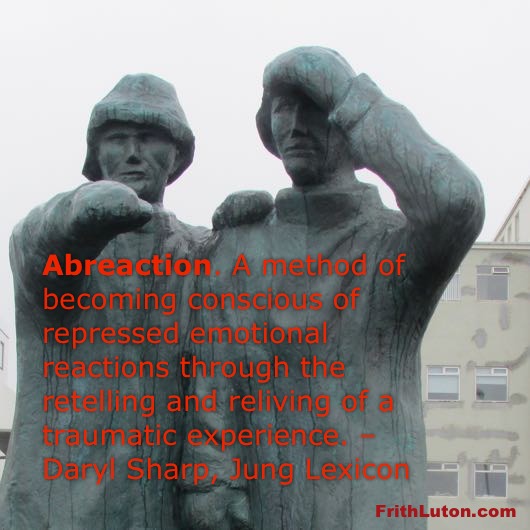Abreaction. A method of becoming conscious of repressed emotional reactions through the retelling and reliving of a traumatic experience. (See also cathartic method.)

After some initial interest in “trauma theory,” Jung abandoned abreaction (together with suggestion) as an effective tool in the therapy of neurosis.
I soon discovered that, though traumata of clearly aetiological significance were occasionally present, the majority of them appeared very improbable. Many traumata were so unimportant, even so normal, that they could be regarded at most as a pretext for the neurosis. But what especially aroused my criticism was the fact that not a few traumata were simply inventions of fantasy and had never happened at all. … I could no longer imagine that repeated experiences of a fantastically exaggerated or entirely fictitious trauma had a different therapeutic value from a suggestion procedure. [“Some Crucial Points in Psychoanalysis,” CW 4, par. 582.]
The belief, the self-confidence, perhaps also the devotion with which the analyst does his work, are far more important to the patient (imponderabilia though they may be), than the rehearsing of old traumata. [Ibid., par. 584.]
© from Daryl Sharp’s Jung Lexicon, reproduced with kind permission of the author.